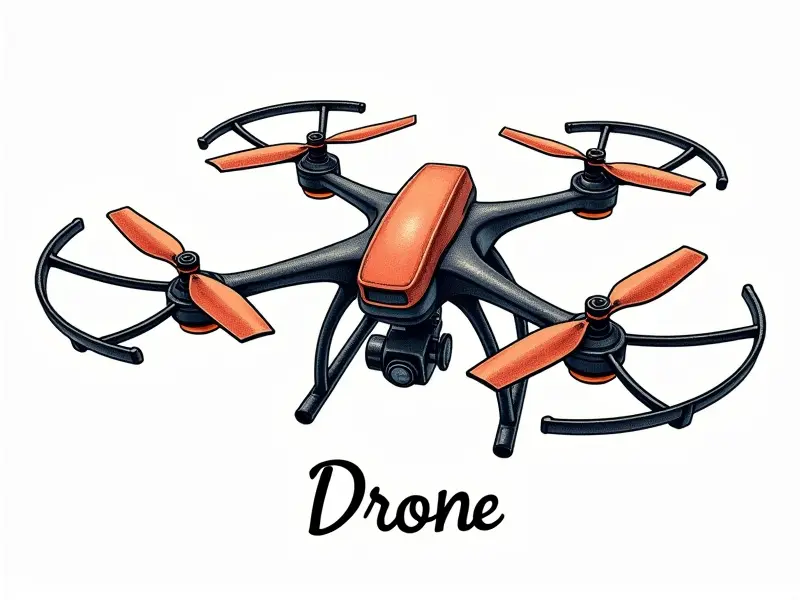Are RC planes safe to fly?

Flying remote-controlled (RC) planes can be an exhilarating hobby, but it's crucial to understand the safety considerations involved. This article delves into whether RC planes are safe for beginners and offers tips on how to stay safe while flying these aircraft.
Are RC Planes Safe for Beginners?
For many enthusiasts, the allure of RC planes lies in their ability to mimic real-world aviation experiences without the need for a pilot's license. However, safety is paramount, especially for beginners. Here are some key points to consider:
- Training and Practice: Start with smaller models that are easier to control.
- Gear Up Properly: Invest in quality equipment designed for novices.
- Familiarize Yourself: Learn the basics of aerodynamics, radio controls, and maintenance.
RC Plane Safety Tips for Flying
To ensure a safe flying experience with RC planes, follow these essential tips:
- Pre-Flight Checks: Inspect your aircraft thoroughly before each flight.
- Battery Management: Charge batteries correctly and monitor their condition.
- Radio Signal Strength: Ensure strong communication between the controller and plane.
Common Risks of RC Plane Flying
While flying RC planes can be enjoyable, it's important to recognize potential risks:
- Crashes: Accidents are common among beginners due to inexperience.
- Electrical Hazards: Faulty wiring or batteries can pose a fire risk.
- Weather Conditions: Strong winds, rain, and other weather factors can affect flight stability.
How to Stay Safe with RC Aircraft
Safety is non-negotiable when flying RC planes. Here’s how you can stay safe:
- Proper Training: Enroll in courses or workshops for hands-on learning.
- Regular Maintenance: Keep your equipment well-maintained and serviced regularly.
- Follow Manufacturer Guidelines: Stick to the instructions provided by manufacturers.
Legalities and Safety in RC Plane Flight
Flying RC planes comes with legal responsibilities. Always adhere to local regulations, including:
- Airspace Restrictions: Avoid flying near airports or restricted airspace.
- No-Fly Zones: Be aware of areas where flight is prohibited.
- Licensing Requirements: Some regions may require specific licenses for certain types of RC aircraft.
Safety Gear for RC Plane Pilots
Investing in the right safety gear can significantly enhance your flying experience:
- Helmets and Goggles: Protect yourself from debris or accidental impacts.
- Finger Guards: Prevent injuries caused by sudden movements of control sticks.
- First Aid Kit: Always carry a basic first aid kit for emergencies.
Ensuring Safety While Flying RC Planes
To ensure you have a safe and enjoyable flying experience, consider the following practices:
- Battery Health Monitoring: Regularly check battery conditions to avoid overheating or explosions.
- Flight Logs: Maintain records of your flights for future reference and learning purposes.
- Community Engagement: Join local clubs or online forums to exchange safety tips and advice.
Protecting People Below During RC Flights
Your flying activities should not endanger people on the ground. Consider these protective measures:
- Flying in Open Areas: Choose wide, open spaces where there is minimal risk of hitting someone.
- Avoid Crowded Places: Stay away from parks and other areas frequented by pedestrians.
- Notify Authorities: Inform local authorities if you plan to fly in large public spaces.
Avoiding Hazards with RC Airplanes
To minimize risks, take proactive steps to avoid potential hazards:
- Weather Monitoring: Check weather forecasts before flying.
- Obstacle Avoidance: Be mindful of trees, power lines, and other obstacles in the flight area.
- Fuel Management: Use quality fuel and store it properly to prevent leaks or spills.
RC Plane Accidents: Causes & Prevention
Understanding common causes of RC plane accidents is crucial for prevention:
- Pilot Error: Inadequate training, poor judgment, and lack of experience contribute to many incidents.
- Mechanical Failures: Faulty components or improper maintenance can lead to unexpected issues during flight.
- Environmental Factors: Harsh weather conditions can affect control and stability of the aircraft.
Safe Flying Zones for RC Planes
Selecting appropriate flying zones is vital for both safety and enjoyment. Look for areas that offer:
- Limited Foot Traffic: Choose locations with minimal pedestrian activity to reduce the risk of accidents.
- Adequate Space: Ensure there's enough room for your RC plane to maneuver without hitting obstacles.
- No Nearby Airports: Avoid flying near airports or other aviation facilities to comply with airspace regulations.
Conclusion
Flying remote-controlled planes can be a thrilling and rewarding hobby, but it requires careful consideration of safety measures. By adhering to the guidelines outlined in this article—from selecting safe equipment to choosing appropriate flying zones—RC plane enthusiasts can enjoy their passion while minimizing risks.

